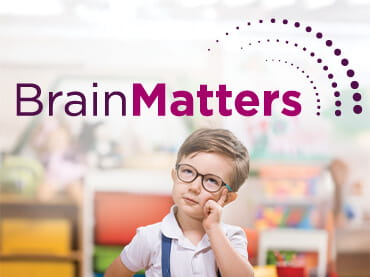- Find a Provider
- Locations
-
Services
- Specialties and Services
- See All Services
Specialties and ServicesBehavioral Health Care Coordination Check In Faster COVID-19 Vaccine Dermatology Driver’s Physical Express Care Flu Vaccine Services Fluoride VarnishLactation Consulting Newborn Care Nutrition Services Online Scheduling Patient Portals Primary Care Medical Home ImPACT® Testing ResearchSame-day Sick Appointments Sports Physicals Substance Use Education Teen Resources Transition to Adulthood Video Visits Walk-in Services Weight Management - Health Resources
-
About Us
- About UPMC CCP
- Patient Resources
About UPMC Children's Community Pediatrics
Why Kids Act on Impulse—And How to Help Them Build Self-Control
Have you ever wondered why your child blurts out a thought, grabs a toy without asking, or acts before thinking? That’s impulsive behavior—and it’s a completely normal part of growing up.
Children’s brains are still under construction, especially in the areas that control self-regulation, planning, and decision-making. The prefrontal cortex—often referred to as the brain’s “thinking cap”—doesn’t fully develop until well into the mid-20s.
So, when your child acts on impulse, it’s often not about disobedience. It’s simply that their brain is still learning how to pause and reflect before reacting.
The Developing Brain: A Work in Progress
Kids are constantly building neural connections. But these skills don’t all develop at the same pace—and kids don’t yet have the benefit of life experience to guide them. Sometimes they really don’t know better, or they may feel overwhelmed and fall back on emotion rather than logic.
Their brains—more active and rapidly evolving than adults’—are naturally inclined toward quick reactions and immediate responses. This is why impulsivity in children—and even teenagers—is so common. Teens, especially, are navigating emotional volatility, peer pressure, and a heightened sensitivity to reward and risk, which can push them toward instant gratification.
Of course, it’s difficult to generalize across every age. Some days your child may surprise you with wisdom beyond their years, and other times they might seem to run purely on instinct. And let’s be honest—don’t we all chase a little fun and spontaneity now and then?
How You Can Help: Building Self-Control Step by Step
Here are some practical, compassionate ways to guide your child as they develop stronger self-control:
- Be patient and name what’s happening. Impulsivity is normal and—as with any big feeling—can be tough to manage. Help your child by identifying the behavior: “It seems like you acted really fast just now—let’s take a minute and think together.”
- Practice calming strategies. Teach your child simple tools like taking a few deep breaths, counting to five, or pausing before speaking or acting. These small habits help kids create space between feeling and doing—which is what time-outs are truly for. Not as a punishment, but as a reset.
- Model calm and reflective responses. Kids are always watching. If you stay grounded during challenging moments, you’re teaching them how to do the same. It’s okay to model your own need for space too: “I need a moment to think. I love you, but I’m feeling frustrated right now.”
- Role-play and rehearse. Emotional intelligence takes time and practice. Walk through likely scenarios with your child. Identify common triggers and brainstorm strategies together. Ask questions like, “How do you think they felt?” or “What could you try next time?”
- Celebrate progress, not perfection. Kids won’t always get it right—and that’s completely okay. Each moment is a learning opportunity—even the messy ones.
When to Seek Extra Support
If impulsive behavior seems excessive for your child’s age or begins to interfere with relationships and daily life, it may be time to consult with a health care provider. Conditions like ADHD or anxiety can sometimes contribute to heightened impulsivity. With your support, patience, and understanding, your child’s brain will continue to grow stronger every day.
Your UPMC Children’s Community Pediatrics (CCP) provider can help assess what’s typical—and what might benefit from additional support. Together, we can help them build healthy habits and the confidence to pause, reflect, and thrive.
Guidance for Growing Minds
At UPMC Children’s Community Pediatrics, we’re passionate about helping families understand the incredible journey of brain development. That’s why we created Brain Matters—a program offering expert guidance, parenting resources, and tools to support your child’s brain health from infancy through the teen years.
Explore Brain Matters today.





